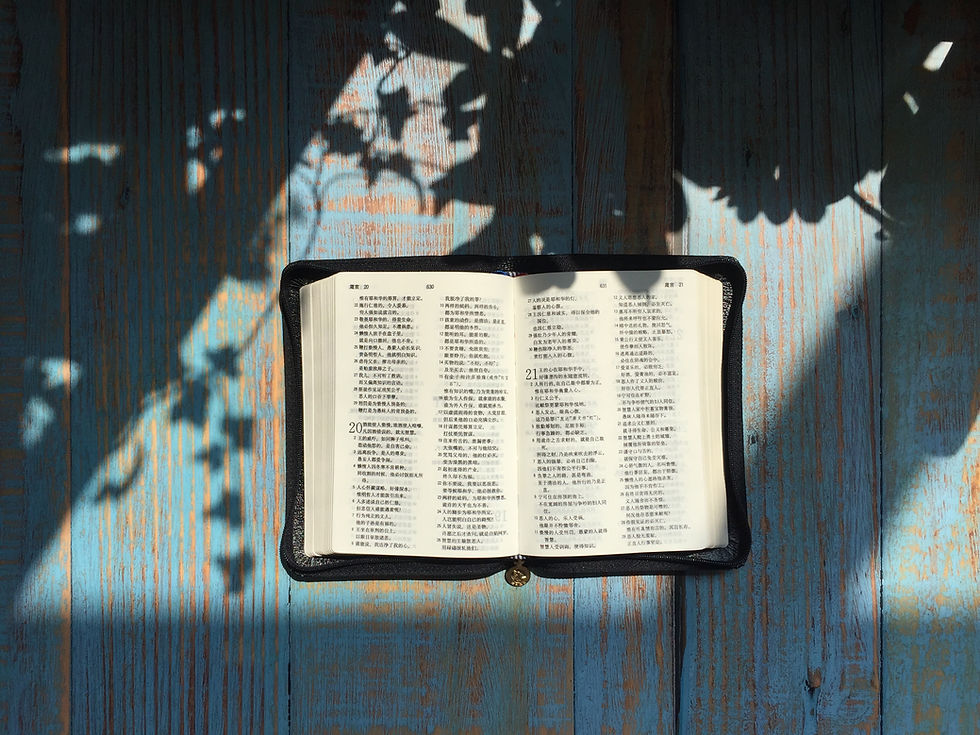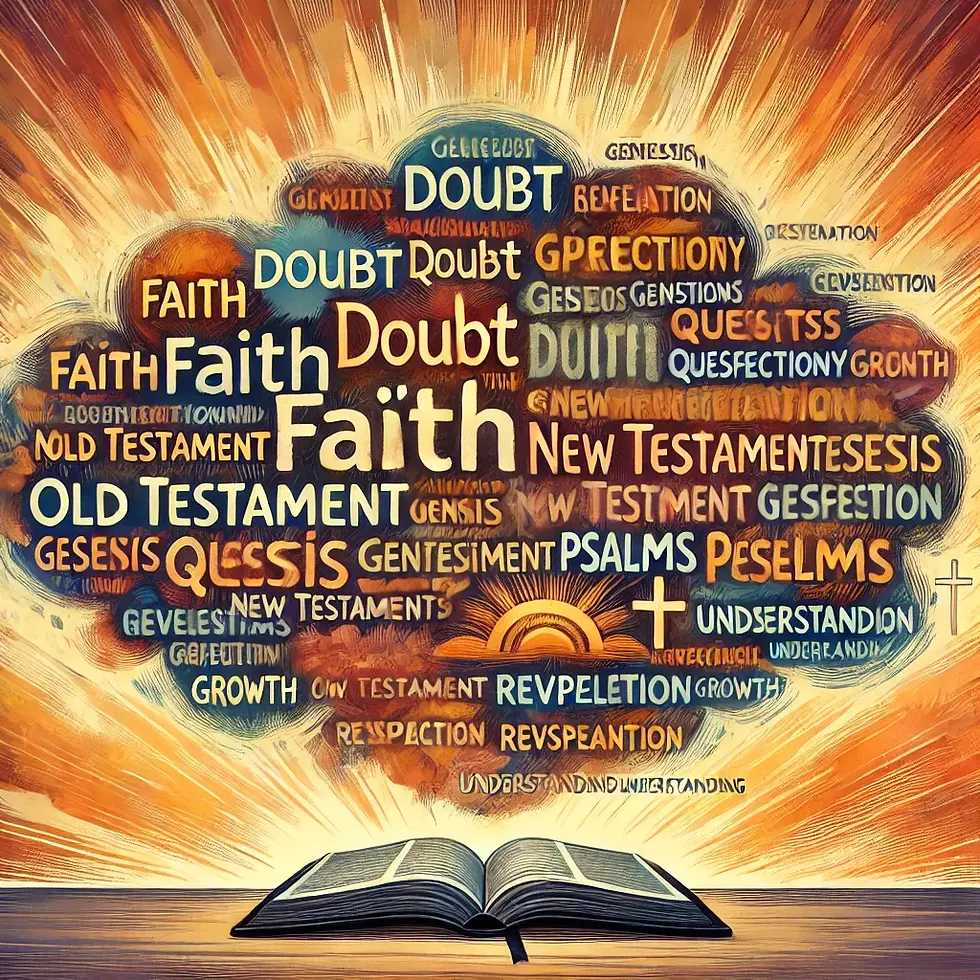Reading the Bible in One Year: A Journey to Start in 2025
- Giselle Blanc
- Dec 30, 2024
- 4 min read
Updated: Jan 3

As we head into the new year, I made a goal for myself of setting aside some time each day to reconnect with my spirituality. This is something I have sort of been lacking in the last few years, and I decided this year I was ready to dedicate some time to it.
I want to be clear about this from the beginning: I don't consider myself a Christian. While I don't subscribe to any one religion or belief system in particular, I tend to gravitate more toward other ideas such as those found in Buddhism, Jainism, Taoism, etc. Sometimes witchy things. Or even general agnosticism.
That being said, I've always been so curious by people who are well studied in the bible and I've wondered if I could find value in reading it. To me, its seems like book written for a different people and a different time, but is there something I'm missing there? Will I discover something profound?
Ultimately, I'd like to approach it with an open but critical mind while allowing myself the freedom to question, analyze, and reflect on what I read. I'm certainly interested in the rich history of the time, and I'm also interested in exploring other written works of the same time period that might not have gained as much fame as the books of the bible.
There are many reasons you might want to read the bible as a non-Christian. Some reasons include:
1. To Explore Cultural and Historical Significance
The Bible has profoundly shaped literature, art, philosophy, and culture for centuries. Understanding its narratives, teachings, and historical context provides insight into the foundations of Western civilization and beyond. Even as a non-believer, one can appreciate its influence on laws, ethics, and societal values.
2. To Gain Literary Appreciation
The Bible is a cornerstone of world literature, containing poetry, parables, prophecies, and epistles. Its passages have inspired countless works, from Shakespearean plays to modern novels. Reading it enriches one’s understanding of literary devices, archetypes, and themes like redemption, sacrifice, and justice.
3. To Understand Religious Perspectives
For agnostics seeking to engage in meaningful conversations with believers, reading the Bible fosters empathy and understanding. By learning what Christians believe and why, agnostics can approach discussions with greater respect and insight.
4. To Seek Personal Growth or Wisdom
Even without faith, many biblical teachings offer practical wisdom on topics like forgiveness, humility, love, and perseverance. Books like Proverbs and Ecclesiastes, for example, are filled with reflections on human behavior, ethics, and the nature of life.
5. To Explore Spiritual Curiosity
Agnostics often express curiosity about spiritual matters without committing to a specific belief system. Reading the Bible can be a way to explore these questions. It may offer a lens for contemplating morality, the meaning of life, or the possibility of the divine.
6. As a Philosophical Exercise
The Bible addresses profound existential questions: Why are we here? What happens after death? What is the purpose of suffering? Engaging with these questions from a philosophical perspective can be intellectually stimulating, even for someone who doesn’t adhere to the Bible's theological claims.
7. To Challenge or Solidify Beliefs
For some agnostics, reading the Bible is part of a broader journey to explore or question spiritual beliefs. It might confirm skepticism or open the door to new perspectives. Either way, engaging with its content can be a meaningful exercise in critical thinking and self-discovery.
8. Out of Curiosity or Interest
Sometimes, the simplest motivation is curiosity. The Bible is one of the most widely read and debated books in human history. Reading it can be a way to satisfy intellectual or cultural curiosity.
Ready to Join Me?
I started the blog to hopefully encourage others to join my on this journey! It would be great to have some other people to engage in thoughtful conversation with about the readings (and maybe even try to save my soul, haha!) I'm sure I'll have a lot to say. What about you?
How to Get Started
For a goal that can seem very daunting, its important to start out with a plan and a structure. I myself will be using an online reading plan, and have set aside some time in the morning before work to focus on my reading. Here are some tips to help you accomplish your goal:
1. Choose a Reading Plan
To read the Bible in a year, you’ll need a structured plan. Some popular options include:
Chronological Plans: Read the Bible as events occurred in history.
Canonical Plans: Read from Genesis to Revelation in the traditional order.
Blended Plans: Combine Old and New Testament readings each day.
Platforms like YouVersion, Bible Gateway, and apps like Dwell offer free plans tailored to various preferences.
2. Set Aside Daily Time
Find a consistent time each day to read. Whether it’s in the quiet of the morning, during a lunch break, or before bed, creating a routine is key.
3. Use Tools to Enhance Understanding
Study Bibles, commentaries, and additional texts can enrich your reading. If you encounter challenging passages, these tools provide valuable context and insights.
4. Reflect and Journal
Take time to meditate on what you read. Writing down reflections or questions helps solidify lessons and makes the experience personal. I plan to record my journey right here in this blog!
5. Find Accountability
Join a group or partner with a friend who shares the same goal. Many online communities host Bible-in-a-year groups where you can share encouragement and insights.







Comments